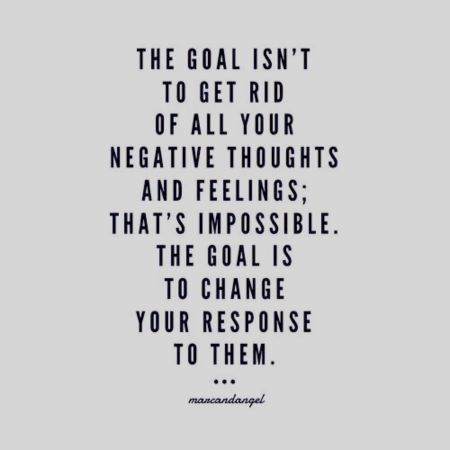In a society where interactions are inevitable, gaining emotional resilience is essential. Learning How to Not Let People Get to You Resilience, in the emotional sense, is the capacity to adjust to stress or other crises. It is more than just bouncing back; it is about learning from these experiences and changing hardship into resilience.
Emotional Triggers
Emotional triggers are events that trigger strong emotional responses. They can range from sounds and words to specific events or memories. Understanding the triggers that trigger emotions is essential to personal development because it helps people manage the reactions they experience and increase their mental health.
Identifying Personal Triggers
The process of identifying your personal emotional triggers requires reflection and mindfulness. Here are a few steps to determine your triggers
- Reminisce about your past experiences. Think about times when you felt an intense emotional response. What was going on at the moment? Was it what you were thinking about and thinking?
- Keep a journal note down for any instances where you are triggered. Record the event, your emotional response, and any thoughts or recollections.
- Ask for Feedback Sometimes, others may grant information about our triggers. Ask your trusted family or friends if they’ve observed specific patterns you’ve noticed in your behavior.
- Do Mindfulness Training. Being aware and in touch with your thoughts and emotions can help you recognize causes in real-time.
Common Emotional Triggers
Each person has their own unique triggers; the most commonly used triggers for emotions are:
- Rejection Feeling marginalized or not accepted can trigger intense emotions.
- Criticism: The unfavorable perception of feedback and comments may cause sadness or defensiveness.
- The Loss of Control The situations in which you feel powerless or chaotic could cause anxiety or even anger.
- Abandonment The fear of being abandoned or unimportant can trigger intense emotional reactions.
- Betrayal: The discovery of the truth that someone you trust has been deceived can trigger anger and hurt.

The Role of Past Experiences
Experiences from the past play a significant influence on our emotional triggers. Critical or traumatic incidents, especially in childhood, have lasting effects. For instance, if a person feels abandoned as a kid and is more sensitive to situations that make them feel isolated or unloved, Knowing the link between previous experiences and triggers of the present can help people work through unsolved issues and lessen the effects of triggers.
Managing Emotional Triggers
The process of identifying emotional triggers requires developing strategies to manage and lessen the impact. There are a variety of techniques to manage emotional triggers, including:
- Enhancing Self-Awareness: Understanding the triggers that cause you to react and the reasons behind them will be the initial step toward controlling your reactions.
- Learning to practice self-compassion: Be gentle with yourself when experiencing intense emotions. Accept your feelings without judgment.
- Building healthy coping mechanisms: Engage in various things that benefit you, unwind, and process your emotions. This could include exercises meditation, meditation, or having a conversation with a person.
- Looking for occupational assistance Therapy or counseling can bring efficient strategies and tools to manage emotional triggers.
The process of identifying and managing emotional triggers is a continuous process. If you can identify the triggers that cause you to stress and understand the causes, you can improve your emotional resilience and live a more balanced lifestyle.
The Psychology Behind Reactions
Fight, Flight, or Freeze Responses
Our immediate responses to perceived threats or stress are categorized as three essential reactions: fight, flight, or freeze. These reactions are deeply embedded in our evolutionary heritage and are automatic responses designed to benefit us to survive.
- Fight The response is taking on the threat directly. It may be expressed as aggression, anger, or even assertiveness. Although this may benefit to resolve the problem, it may cause conflict if mishandled.
- Flight The response is seeking to escape or avoid danger. It may manifest as anxiety, avoidance behaviors, or withdrawal from certain situations. Although it can offer additional relief for a short time, this can leave problems unsolved.
- Freeze This reaction is characterized by feeling completely unable to do anything. It may be manifested as numbness, dissociation, or even inaction. While this could safeguard us from harm in the immediate future, it also hinders us from taking action on the issue.
Cognitive Behavioral Patterns
Our emotions, thoughts, and behavior are interconnected. Our cognitive patterns affect the way we respond to various situations. Negative thought patterns, like catastrophizing or black-and-white thinking, can cause anxiety. Cognitive Behavioral Therapy (CBT) seeks to uncover and redefine these negative thought patterns to help raise emotional responses and behaviors.
- Catastrophizing: The process involves anticipating the worst-case scenario for any situation, which can improve stress and anxiety.
- The black-and-white mentality can be described as seeing situations as extremes without a middle ground. This could cause unrealistic expectations and dissatisfaction.
- Overgeneralization is the process of drawing generalizations based on one event. This can lead to negative self-perceptions as well as beliefs.
Influence of Self-Esteem
- Positive self-talk replacing negativity with affirmations may increase self-esteem and increase resilience in the emotional realm.
- Set realistic goals. Small, achievable goals can boost confidence and feelings of satisfaction.
- Celebrating achievements Celebrating and acknowledging personal accomplishments, regardless of how small, can help reinforce positive self-images.
Knowing the psychology that drives our responses will help us deal with the emotions we experience more efficaciously and create more effective coping strategies. It is possible to raise our emotional resilience and overall health by being aware of our automatic reactions to negative thoughts, challenging them, and boosting self-confidence.
The Role of Self-Care
Self-care is a critical factor in ensuring emotional resilience and overall wellbeing. It requires you to take deliberate actions to maintain your physical, mental, and mental wellbeing. When you prioritize self-care, you will be able to better manage stress, prevent burnout, and improve your ability to meet life’s challenges.
Physical Self-Care
Physical self-care involves taking deliberate actions to preserve and boost the physical health of one’s wellbeing. It covers a variety of activities that aid in physical fitness, such as regular exercise, a balanced diet, adequate sleep, and good hygiene. Participating in self-care helps increase your energy level, improve your mood, and reduce the risk of getting sick. This also involves paying attention to your body’s demands, like having breaks when you’re exhausted, staying hydrated, and seeking medical assistance. By focusing on self-care for their body, it is possible to boost their overall wellbeing, resilience to stress, and overall quality of life.
- Exercise Regular physical exercise such as running, walking, or yoga can improve your body’s mood and energy levels and ease stress.
- Nutrition: A healthy, balanced diet with plenty of vegetables, fruits, whole grains, and lean proteins can boost overall health and well-being.
- Sleep: Sleeping sufficient, quality sleep every night is essential to your mental and physical recovery. You should aim for 7 to 9 hours of rest each night.

Emotional Self-Care
Emotional self-care involves activities that help you process and express your emotions. It focuses on acknowledging and validating your feelings and finding healthy outlets.
- Mindfulness and Meditation: Mindfulness and meditation can help you stay present, reduce anxiety, and manage emotions more effectively.
- Journaling: Writing about your thoughts and feelings can provide clarity and an emotional outlet, helping you process experiences and reflect on your emotions.
- Connecting with Loved Ones: Spending time with friends and family who provide emotional support can strengthen your resilience and enhance your well-being.
Expert Insights
Psychologist’s Perspective
Psychologists emphasize the importance of understanding the root causes of emotional reactions. Dr. Jane Smith, a clinical psychologist, explains that “past experiences and deeply held beliefs often shape our emotional responses. By recognizing these underlying factors, individuals can develop strategies to manage their reactions more effectively.”
Dr. Smith also highlights the significance of self-awareness in emotional regulation. “Self-awareness allows individuals to identify their triggers and understand how they react to situations. This awareness is the first step towards developing healthier coping mechanisms.”
Personal Development Coaches
Personal development coaches focus on continuous self-improvement and adopting a growth mindset. John Doe, a renowned personal development coach, states, “Emotional resilience is not something you are born with; it is a skill that can be developed. By embracing a growth mindset, individuals can view challenges as opportunities for growth rather than threats.”
Doe also advocates for the practice of mindfulness and meditation. “Mindfulness helps individuals stay present and grounded, reducing the tendency to react impulsively to stressors. Meditation, in particular, can train the mind to maintain calm and focus, even in challenging situations.”
Further Readings
- Ultimate Guide On Stages Of A Dying Marriage
- Signs She Cheated And Feels Guilty Of Her Act
- I Hate Being a Mom – Reasons & Coping Strategies
Case Studies and Success Stories
Real-life examples can provide practical insights and inspiration for managing emotional responses. One such success story is that of Emily, a marketing executive struggling to handle criticism at work. Through cognitive behavioral therapy (CBT) and mindfulness practices, Emily learned to reframe negative feedback and view it as constructive. “I realized that criticism wasn’t a reflection of my worth but an opportunity to improve my skills. This shift in perspective helped me handle feedback more positively and reduced my stress significantly,” she shares.
Another inspiring story is of Michael, a college student who faced severe anxiety in social situations. By engaging in regular exercise, practicing mindfulness, and seeking support from a therapist, Michael was able to manage his anxiety effectively. “Exercise became my outlet for stress, and mindfulness helped me stay present rather than getting lost in anxious thoughts. With the support of my therapist, I developed strategies to navigate social interactions confidently,” Michael explains.